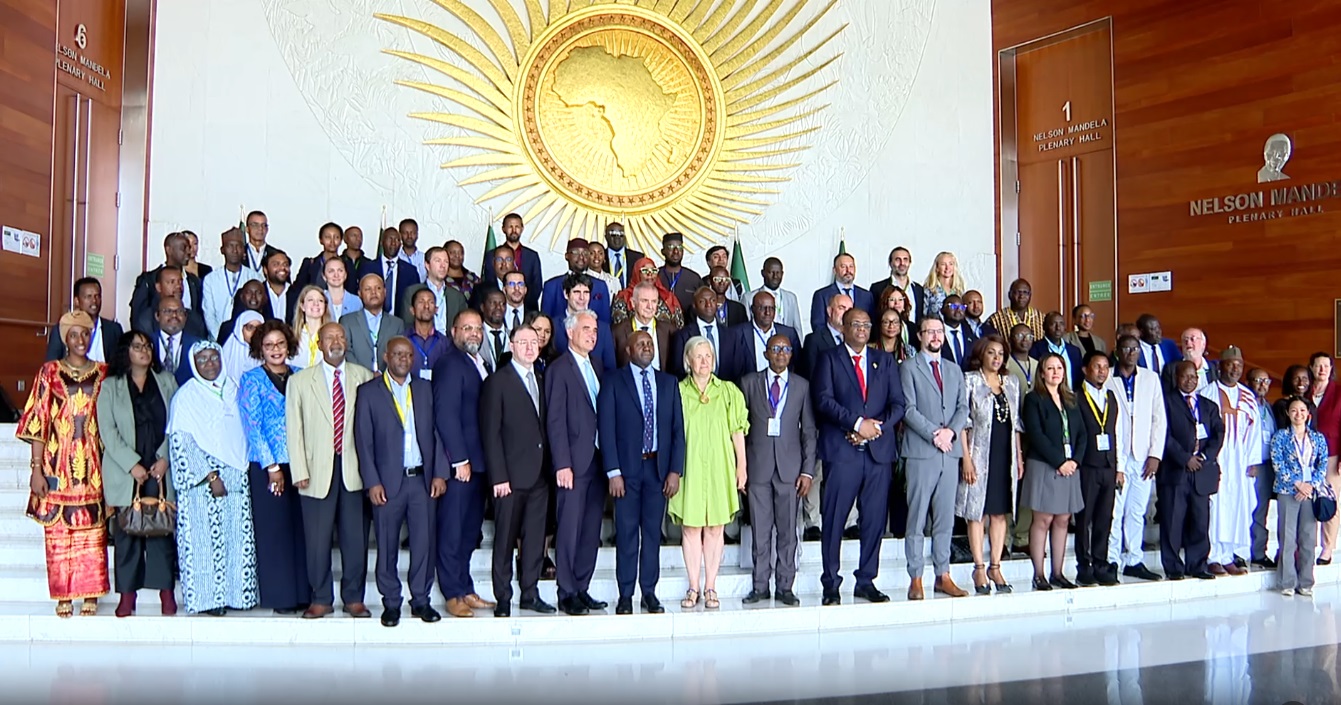Stakeholders Stress Collaborative Approach for Successful Execution of Great Green Wall Initiative - ENA English
Stakeholders Stress Collaborative Approach for Successful Execution of Great Green Wall Initiative

Addis Ababa, May 13, 2025 (ENA)— Collaborative approach of implementing the African Union Great Green Wall Initiative (GGWI) is vital to ensure the success of the initiative while fostering healthy ecosystems and sustainable landscapes, stakeholders emphasized.
The GGWI is a large-scale, African-led project to combat desertification and climate change by restoring degraded land in the Sahel region.
AU has convened an engagement meeting today focusing on the Great Green Wall Initiative, drawing experts and partners to discuss its implementation.
Opening the session, Harsen Nyambe Harsen, Sustainable Environment and Blue Economy Director at the African Union Commission said that the meeting aimed at strengthening partnerships among various stakeholders committed to combating desertification and promoting biodiversity across the continent.
The director emphasized the critical need for an integrated approach to environmental management and ensured the implementation of GGWI, stressing that collaborative approach is at the heart of the efforts to restore ecosystems and enhance food security.
“We can’t be able to implement the GGWI as individual organization; it requires we all join hands together to be able to make an impact because if we take a fragmented approach, there is no way that we can be able to address the challenges that they face or to implement this massive initiative,” he elaborated.
The Great Green Wall represents more than just an environmental project; it embodies a vision for sustainable development that can uplift millions of lives, he pointed out.
“The GGWI to us actually represents food on the table or transforming deserts into food baskets. It represents us being able to create green jobs and hope for the people who are living in degraded lands. Therefore, it is important that all those who are actually concerned about humanity should be able to contribute towards this initiative,” he stated.
On his part, Professor Labode Popoola, Executive Secretary of the African Forest Forum, stressed that for the effective management of forests and other natural resources is essential for creating resilient landscapes.
He added that empowering local populations is crucial for the success of environmental initiatives like the GGWI.
Africa needs to leverage its collective knowledge to tackle the challenges posed by climate change and land degradation, Professor Popoola noted, urging stakeholders to share best practices and innovative solutions.
Moreover, GGWI requires a lot of resources, commitment and political will, he noted, underlining the need for working together to ensure the success of the initiative.
The professor emphasized to continue implementing the initiative though making headway is gradual.
“It is a process; it has to continue. You can’t achieve it in a day. It can’t be achieved in a year; it can’t even be achieved in ten years. But, the important thing is that the journey has started and everybody seems to be working together. We agreed that climate change is a problem; it is a global problem. It is affecting humanity and sustainable development. So, I believe that all the countries are cooperating and they are going to work together to ensure the success of the Great Green Wall Initiative.”
Launched in 2007, the Great Green Wall Initiative was established to create a great mosaic of green and productive landscapes across North Africa, the Sahel, and the Horn of Africa, envisioning a belt of trees, encompassing various sustainable land use practices and addressing issues like food insecurity, biodiversity loss, and poverty.